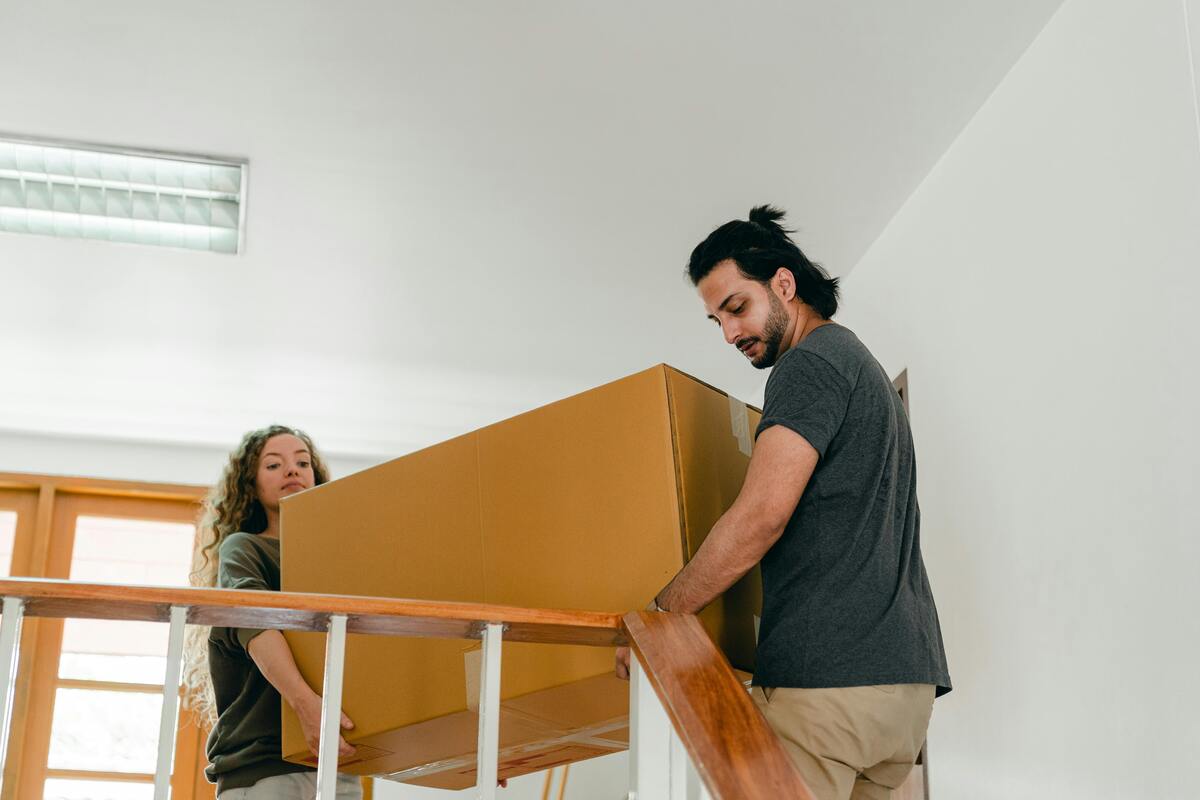![]() Simon is great to work with, super friendly and responsive. I would highly recommend house hunting with him!
Simon is great to work with, super friendly and responsive. I would highly recommend house hunting with him!
In this detailed guide, find out – how long does it take to buy a house? I also explore the different things that can speed up or slow down the process.

Article written by Simon Jackson, the Managing Director of Fine Living and a property expert with more than 20 years of industry experience. Simon has worked for large corporates as well as boutique agencies – now he brings the best of both worlds to Fine Living. Having lived in London for over two decades too, his knowledge of the property market in the UK capital is second to none.
When showing people around a property, one of the questions they often ask me is: “How long does it take to buy a house, on average?”
As you would expect, the time it takes depends on several factors, which I’ll explore in detail throughout this article.
I’ll break down the key stages of buying a property and explain what can speed up the process or cause delays.
Whether you’re buying with or without a chain, I’ll walk you through what to expect at each step so you can plan ahead and avoid surprises.
Contents:
How long does it take to buy a house?
According to government statistics, the time required to buy a home is five months on average.
And if you need to sell to buy and are wondering “how long does it take to sell a house?” The answer is the same – it also takes five months on average to sell a home, according to government data.
That timeframe can vary significantly though. I have my own thoughts and I’ve also collated data from other sources:
- Low estimate: If everything works in your favour, you may be able to buy a house in about three months, although that is certainly quicker than average. In this scenario, you’ve found the property you want to buy almost immediately and encountered a smooth exchange of contracts.
- High estimate: However, if the purchase process is more complicated, plan for it to take up to seven or eight months on average. I’ll cover the common reasons for a longer process in the next section.
There is no cut-off point, so it’s possible for the process to take longer. To some extent, by planning ahead and anticipating what could slow down the process, you may be able to get ahead and shorten the timeline – but there could be several factors outside your control too.
Common reasons for a longer purchase process
A house purchase can often take longer than buyers expect, with several factors contributing to delays. Here are the most common reasons:
- Finding a property you like: Buying a new home is a big decision, so you may want to see several different ones before making an offer. There’s more on this in the next section.
- Making a suitable offer: There is no guarantee that the seller will accept your offer, particularly if your valuation is lower than theirs.
- Mortgage issues: Problems with securing a mortgage, expired offers, or down valuations (when the lender values the property lower than the agreed price), can stall the process.
- Property chains: If your seller needs to buy another property before selling to you, a delay here can hold up the entire process. The longer the chain, the higher the risk of delays.
- Local authority searches: These check for planning, environmental, or legal issues with the property. Delays often occur if local councils have backlogs.
- Conveyancing delays: The legal transfer of property can be slow due to complex paperwork, slow responses from solicitors, or disagreements between parties.
- Property surveys: Property searches may reveal structural or other issues, leading to renegotiations or further investigations.
- Leasehold and shared ownership properties: Buying leasehold or shared ownership properties is generally more complex. Reviewing lease terms, checking service charges and clarifying responsibilities can add weeks to the process.
- Managing agents for leasehold properties: With a leasehold property, be prepared for delays in receiving, paying for and reviewing the management pack from the block agent or freeholder. A delay at this stage is common, especially if the agent is slow to respond due to a backlog, or if you need to raise and resolve any queries.
- Enquiries and additional documentation: Solicitors may raise additional enquiries about the property, especially if issues are uncovered in searches or surveys. Waiting for responses or additional documentation can add to the timeline.
- High solicitor caseloads: Busy periods in the property market can keep solicitors, lenders, and local authorities busy, leading to slower processing times. Here’s how to decide between a conveyancer and a solicitor when buying a house.
- Changing seller or buyer circumstances: Delays can occur if the seller or buyer faces a change in circumstances or is slow to respond to requests.
- Competing offers: If another potential buyer makes an offer after yours, the seller may delay the process while they consider the new one.
As you can see, many of the potential delays occur between making a suitable offer and the exchange of contracts phase, i.e. the conveyancing and surveys. Find out more about what can hold up the exchange of contracts in this dedicated guide.
Buying a new home – the steps involved and estimated timelines
But other parts of the purchase process can cause delays too.
For instance, finding a property you want to make an offer on could take as long as the rest of the process, depending on your preferences.
Here are the main stages of the buying process and a rough guideline for how long each can take, based on a combination of my thoughts and benchmarks from other sources:
- Finding the right property (4-12 weeks)
- Offer and negotiation (1-2 weeks)
- Mortgage approval (2-4 weeks)
- Conveyancing and surveys (4-12 weeks)
- Exchange of contracts (1-2 weeks)
- Completion (1-2 weeks)
Find out more about the different stages in this first time buyer checklist.
In short, aside from the exchange of contracts phase, how long it will take you to find the right property can also vary significantly. That’s why I’ve put 4-12 weeks there as a ballpark estimate.
Just under 40% view fewer than five properties on average, according to Which. But of course, you may wish to see your favourite property more than once before making an offer – here is my list of questions to ask when viewing a house.
On the one hand, you could say that there are so many great properties out there that it’s hard to narrow them down. But on the other hand, if you have a list of strict criteria that your next property needs to have, it may take you a while just to find one that ticks all the boxes.
In some cases, you may find your ideal property with little to no research at all – for example, if buying a property you are currently renting.
Final thoughts: How long does it take to buy a house (UK)? FAQs
While every situation is different, here are some approximate answers to questions I’m often asked about the timelines:
- How long does it take to buy a house from offer to completion? Based on the above estimates, once the seller accepts your offer, the rest of the process should last somewhere between 8-20 weeks2-5 months on average
- How long does it take to buy a house with no chain? The calculations so far assume that the sale is chain-free. Be prepared for a property to chain to add a few weeks onto the average timeframe, but this is difficult to quantify precisely.
- How long does it take to buy a house if paying cash? Buying in cash could shave a few weeks off the timeline because you can skip the ‘mortgage approval’ stage and also simplify the ‘exchange of contracts’ phase
I hope you found this article useful and for other guides, take a look through the blog. In my most recent guide, I explained how a property deed of variation works.
Here at Fine Living, there’s a wide range of beautiful London properties available to buy – browse the portfolio to see them!
If you have any questions or would like to ask about a property in the Fine Living portfolio, please don’t hesitate to get in touch.
Want to discuss the advice on this blog - or anything else?











